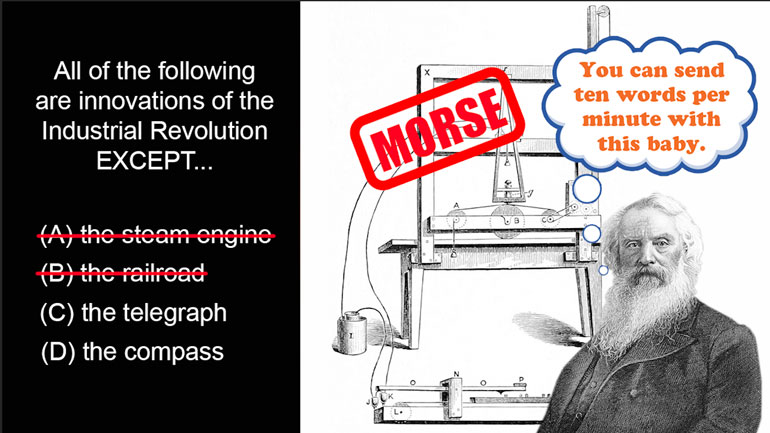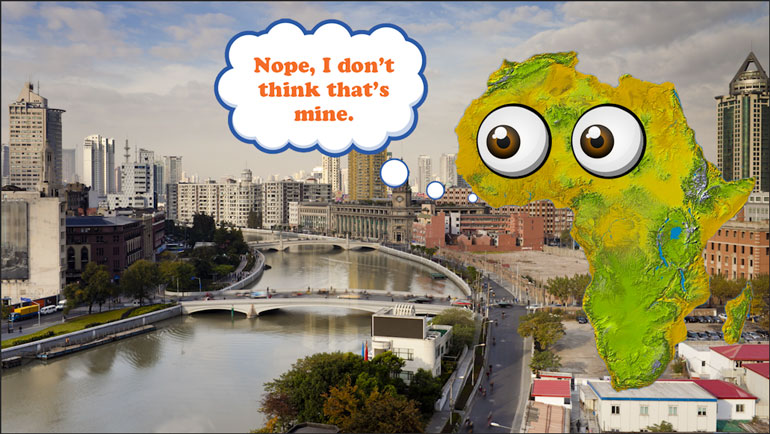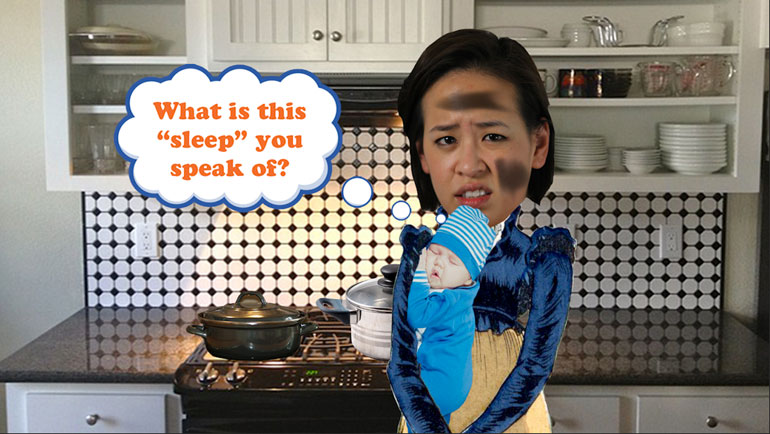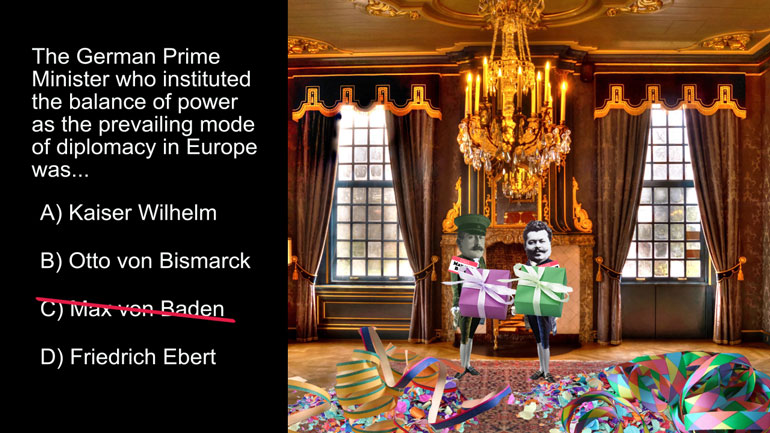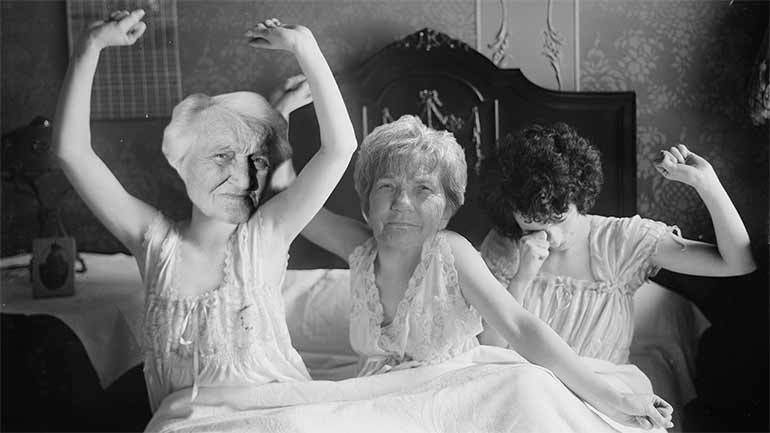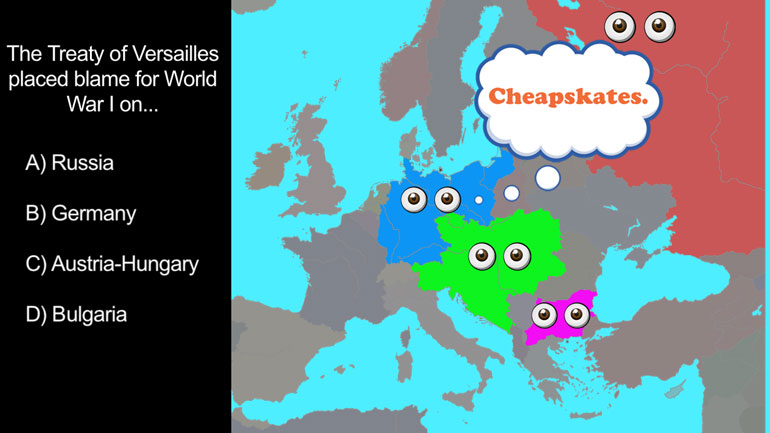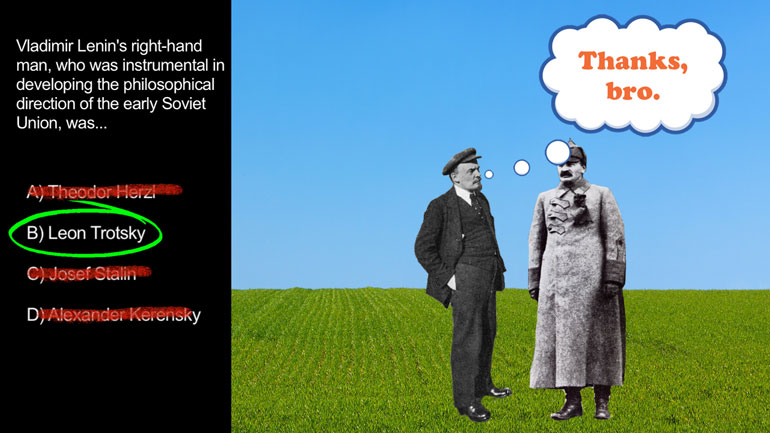ShmoopTube
Where Monty Python meets your 10th grade teacher.
Search Thousands of Shmoop Videos
Industrialization and Global Integration, c. 1750 to c. 1900 Videos 16 videos
AP World History 1.2 Industrialization and Global Integration, c. 1750 to c. 1900. All of the following are innovations of the Industrial Revolutio...
AP World History 4.3 Industrialization and Global Integration, c. 1750 to c. 1900. What was the immediate cause of the First Sino-Japanese War?
AP World History 2.5 Industrialization and Global Integration, c. 1750 to c.1900. What was the relationship between abolitionist movements and wome...
AP World History 4.3 Industrialization and Global Integration, c. 1750 to c. 1900 275 Views
Share It!
Description:
AP World History 4.3 Industrialization and Global Integration, c. 1750 to c. 1900. What was the immediate cause of the First Sino-Japanese War?
Transcript
- 00:00
Sorry And here's your shmoop du jour brought to you
- 00:04
by the first sino japanese war which was similar to
- 00:08
the second sino japanese war but far more stylish All
- 00:12
right here's your question What was the immediate cause of
- 00:15
the first sino japanese war and hear the potential answers
Full Transcript
- 00:19
All right Well prior to the first sino japanese war
- 00:22
meggie japan was just beginning to enjoy its reputation as
- 00:26
a rising asian power And considering the china was the
- 00:29
big man on campus at the time it's no surprise
- 00:32
that japan had their sights set on him So was
- 00:34
a the immediate cause of the first sino japanese war
- 00:38
Well does it quick and easy No The start of
- 00:40
the war had nothing to do with japanese guest workers
- 00:43
so we can eliminate a right there on lee Everything
- 00:45
in life was so easy The taiping rebellion on the
- 00:49
other hand was actually a pretty big deal The rebellion
- 00:52
was a civil war between southern china and the ruling
- 00:54
manchu ching dynasty led by emperor shang fang The fighting
- 00:59
lasted from eighteen Fifty two Eighteen Sixty four after rebellion
- 01:02
leader hong shi oh chuan claimed to be jesus brother
- 01:06
And established heavenly kingdom in the south is an oppositional
- 01:09
state to the ruling party Uh so you know pretty
- 01:12
normal stuff and we don't make this stuff up either
- 01:15
But while japan definitely kept a close eye on the
- 01:17
taiping rebellion in hopes of southern china toppling the all
- 01:20
powerful ching dynasty their support wasn't that much of a
- 01:23
concern to ching's though we can eliminate answer b and
- 01:27
while it's true that only twenty percent of japan's land
- 01:29
is arable or suitable for agricultural cultivation that's not our
- 01:33
answer either Now the real reason for the start of
- 01:35
the war was b japan New china was weakened after
- 01:38
its civil war and wanted to up their game by
- 01:40
exerting the most influence on korea and it worked The
- 01:44
war started in eighteen ninety for it After a series
- 01:46
of successes by the japanese etching leaders caved in sued
- 01:50
for peace a year later officially signaling the beginnings of
- 01:53
japan is the regional leader does what better way to
- 01:57
assert your dominance than toe pick on the little guy
Related Videos
AP World History 3.2 Industrialization and Global Integration, c. 1750 to c. 1900. The Sepoy Mutiny resulted in...what?
AP World History 1.1 Accelerating Global Change and Realignments, c. 1900 to Present. The Treaty of Versailles placed blame for World War I on...wh...
AP World History 1.2 Industrialization and Global Integration, c. 1750 to c. 1900. All of the following are innovations of the Industrial Revolutio...
AP World History 2.5 Industrialization and Global Integration, c. 1750 to c.1900. What was the relationship between abolitionist movements and wome...
AP World History 1.2 Accelerating Global Change and Realignments, c. 1900 to Present. Vladimir Lenin's right-hand man, who was instrumental in deve...
